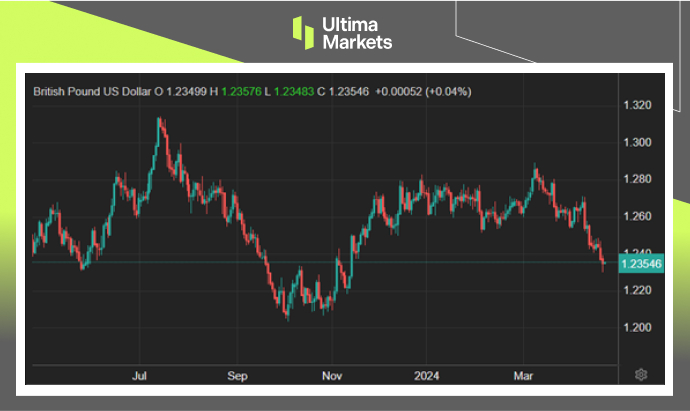
Mounting Expectations for British Rate Cut Sparks Market Volatility
The FTSE 100 index extended its early gains, closing 1.62% higher at 8,024 on Monday, marking a record-high close. It outperformed other European stock markets amid hopes of eased financial conditions and lower concerns about geopolitical risks. Bank of England Monetary Policy Committee (MPC) member Ramsden downplayed the risks of higher inflation in the UK economy, fueling speculation that he may soon vote for a looser monetary policy, adding to the strong momentum for British equities.
Consequently, rate-sensitive companies led the gains, with retail-focused firms like Ocado, Marks & Spencer, and Next adding between 4.5% and 3%, while homebuilders Persimmon and Barratt jumped 2.5%. Meanwhile, banks rallied, with HSBC jumping 3% and Barclays adding 2% ahead of its earnings report on Thursday. However, Standard Chartered underperformed in the financial sector due to an investigation into claims that it breached Iranian sanctions to win clients. Additionally, a muted session for ferrous and base metals led to miners underperforming the broader market.

(FTSE 100 Index Yearly Chart)
Investors recalibrated their expectations regarding the timing of the first rate cut by the Bank of England after Deputy Governor Dave Ramsden made dovish comments. Ramsden suggested that the risk of British inflation remaining excessively high had diminished, and it could potentially fall below the BoE’s most recent forecasts. This statement contrasted with his colleague Megan Greene’s caution against the central bank considering interest rate cuts, citing recent data indicating elevated wage growth and services price inflation in Britain.
Due to Ramsden’s remarks, markets now anticipate the first reduction in borrowing costs occurring at the August meeting, compared to the previously anticipated September. There is even a possibility of an earlier adjustment as soon as June. Consequently, the British pound weakened towards $1.23, reaching its lowest point since mid-November. Meanwhile, the US dollar retained its strength, supported by hawkish remarks from Federal Reserve officials.

(GBPUSD Yearly Chart)
Disclaimer
Comments, news, research, analysis, price, and all information contained in the article only serve as general information for readers and do not suggest any advice. Ultima Markets has taken reasonable measures to provide up-to-date information, but cannot guarantee accuracy, and may modify without notice. Ultima Markets will not be responsible for any loss incurred due to the application of the information provided.
Why Trade Metals & Commodities with Ultima Markets?
Ultima Markets provides the foremost competitive cost and exchange environment for prevalent commodities worldwide.
Start TradingMonitoring the market on the go
Markets are susceptible to changes in supply and demand
Attractive to investors only interested in price speculation
Deep and diverse liquidity with no hidden fees
No dealing desk and no requotes
Fast execution via Equinix NY4 server









